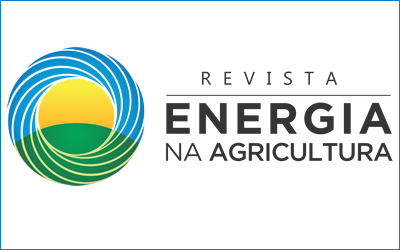OPTIMIZATION OF MECHANIZED FLEET AS FUNCTION OF CULTIVATED-AREA AT BEGINNING OF THE BIOENERGY BRAZILIAN PROGRAM (PRO-ALCOHOL)
DOI:
https://doi.org/10.17224/EnergAgric.2023v38n1p58-67Resumen
In the 1960s, due to the closing of the US sugar market to Cuba (the Cuban crisis), the Brazilian government developed a strategy to occupy part of this market: through the Sugar and Alcohol Institute (IAA), which took several actions to lead to the modernization of sugar and alcohol agroindustry. This strategy was the basis for the national biofuel alcohol production program (Proalcool) in 1975. The ethanol jumped from 0.6 to 3.4 billion liters from 1975 to 1979/80, significantly exceeding the production target. This feat stimulated the Planalsucar (IAA) research to conduct an extensive survey of the fleet of agricultural machinery and implements in 67 units. The general aim of the present paper was to provide a historical record of this unedited survey database. The specific goal was to analyze the variation in the number of tractors and implements per thousand ha as a function of the sugarcane planting area to study the optimization of equipment use. We determined the linear correlation coefficient and the regression equation for each device. All significant correlation coefficients showed a decrease in the number of machines and implements per 1,000 ha related to cultivated area as follows: the number of tire tractors, total power of tire tractors (kW), harrows, plowers, furrows, loaders, and cultivators (cultivating implements). In other words, the larger the property, the smaller the need for tractors and implements per unit area. This work brought evidence to the performance of a process of the economy of scale in the sugarcane production system.
Publicado
Cómo citar
Número
Sección
Licencia
Derechos de autor 2024 Energia na Agricultura

Esta obra está bajo una licencia internacional Creative Commons Atribución-NoComercial-SinDerivadas 4.0.
Esta revista proporciona acesso publico a todo seu conteúdo, seguindo o princípio que tornar gratuito o acesso a pesquisas gera um maior intercâmbio global de conhecimento. Tal acesso está associado a um crescimento da leitura e citação do trabalho de um autor. Para maiores informações sobre esta abordagem, visite Public Knowledge Project, projeto que desenvolveu este sistema para melhorar a qualidade acadêmica e pública da pesquisa, distribuindo o OJS assim como outros software de apoio ao sistema de publicação de acesso público a fontes acadêmicas.





